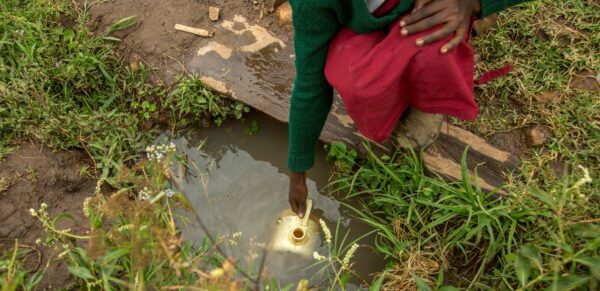“Every poo needs a loo” – a chat with water-sanitation charity Dig Deep
By Ella Marsden

Imagine waking up in the morning and not being able to flush the toilet, brush your teeth or pour a glass of clean drinking water. What if you had to walk 80 minutes to access safe running water and, when you finally got there, that water was just a dirty puddle. For 8/10 people in South West Kenya, this is their reality.
Access to water is considered a human right. It is one of the seventeen sustainable development goals set by the United Nations in their agenda to reduce poverty and hunger. Working within the County of Bomat, in the village of Ndanai, Dig Deep are striving to provide, what they label, the three T’s. Taps, toilets and training. I spoke to their Head of Fundraising, Rachael Marshall, to dig deeper and find out more about the charity.
Why is it so important to have clean, running water? Not only is it detrimental to health, but also to education. Walking so far, day in and day out, to find water means that children don’t have time to go to school, it is no longer viable for them to pay the school fees and they stop going.
Rachael Marshall informs me that often on arriving at the schools in the Bomat area, they find that their water source is essentially a pond. Often this is shared with cows or other animals who not only drink from it, but sometimes defecate in it. Some schools build their own toilets out of planks of wood and corrugated metal. These fairly simple structures are not private or sanitary and have been known to fall on children, causing them to be afraid of going to the toilet and encouraging them to practice open defecation.
This poor practice of sanitation and lack of clean water sources means that the spread of preventable disease is extremely prevalent. Rachael informs me that every year more people die of entirely preventable diarrhoea related diseases than of malaria and warfare combined. Just by building a block of toilets with proper ventilation and a proper water supply, the spread of disease is significantly decreased. The number of children attending school and getting the education they deserve will rise, giving them the freedom to do what they want in the future. Dig Deep works within communities to ensure that they have ownership over the work and it’s implementation. They make sure that the school and the children are aware of how the facilities are best used, sometimes by decorating them with paintings such as “every poo needs a loo”.
By using a “shut up and listen” approach, the charity lets the community take the lead on the projects to establish strong relationships grounded in trust and respect. Rachael tells me the locals are receptive and welcoming of the projects, and gets sent many photos of the community members mucking in and helping.
Another huge issue in Kenya, Rachael goes on to inform me, is the lack of education around menstruation. Periods are generally not included in the puberty syllabus at school. When young girls do reach their first period, they do not know what it is, with only 12% of them feeling comfortable enough to talk to their parents about it, let alone asking for a sanitary towel.
Rachael oversaw Jen Moore doing research on localised issues surrounding Menstruation in Kenya, with 16 focus groups including teachers, parents and community health volunteers who help with training. They aimed to break down cultural taboos surrounding menstruation, such as not milking cows or picking vegetables whilst they are menstruating.
Dig Deep relies strongly on student fundraising to continue to do their excellent work. If you want to get involved, you can take part in one of their Dig Deep challenges such as climbing Kilimanjaro or Mount Kenya. If this is a bit far from home, their main office is based in Sheffield and you can get involved with general volunteering or offering specific skills and experiences.
Or why not become a Period Pride Rep? By hosting events such as a ‘period party’ you can help in breaking down the taboos surrounding menstruation. Events such as these, and the fundamental work of Dig Deep, can draw together young women from all around the world and improve the lives of communities in Kenya for the better, so get involved.








